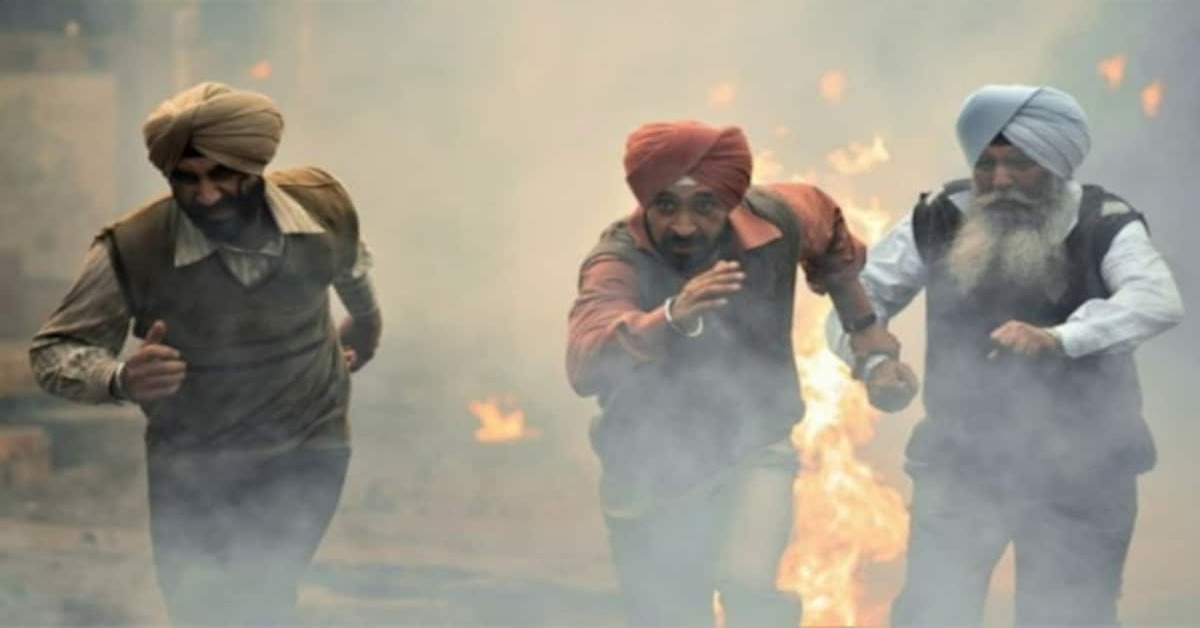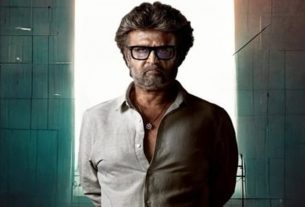Jogi is the story of 1984 of anti-Sikh program in Delhi which begins right in the middle of mayhem, the film starring Diljit Dosanjh.We aren’t shown the infamous assassination but simply thrust into the everyday lives of a Sikh family from Trilokpuri.The setup is adequate, and it transports you to the middle of all the chaos once Jogi and his father are unceremoniously thrown off a bus.The problem is that rather than bear testament to the unrelenting trauma,the endless dread of those days, the film wants to instead tell a story about friendship, more so about the benign origin of hate.
Jogi has friend in Rawinder, a policeman played by a committed Mohd Zeeshan Ayyub. Rawinder goes against the orders of the evil local councillor, Tejpal (Kumud Mishra) to protect his friend and neighbours from certain lynching. But there is a structural twist. Lali, played by an excellent Hiten Tejwani is added to the mix as another policeman with convoluted personal score to settle with Jogi. What that personal grievance is revealed late in the movie as some sort of benevolent excuse for the character’s murderous intent. It’s weak, wholly and weakens a film that could have maybe used a leaner plotline.Jogi meanders into nooks and corners, applying the balm of difficult friendships on the idea of mindless brutality, robbing the film of both spirit and courage.
Jogi wants to recreate the intimate tensions of Kai Po Che, but the fact that it does so as an afterthought, without really establishing the origin of its characters and their intra-relationships undermines their emotional appeal. In a scene, Lali tells Rawinder “Dost hoga tera. Jogi mera dushman hai”. This weirdly stubborn exposition is laid out rather flatly in the film without even the hint of a friendship between the leading characters and the significance of the status quo between them. Not only does this reek of inconsistency, but also of a certain literal inadequacy that jumbles plotlines and key moments into an abstract muddle. That key moment between the friends at the end feels wholly unearned and frankly insincere despite a gooey flashback to troubling personal histories.
It is directed by Ali Abbas Zafar, Jogi is one of those films that comes loaded with cultural recall and must therefore reinvent itself to tell a familiar story differently. We have seen the images of Sikhs cutting hair and being torched alive before, but what could Zafar’s imagination offer that which hasn’t already been showcased bit-part in our cinema before. Mind you, this is probably still the first full mainstream portrayal of the Delhi massacre, and yet it feels too relaxed and formulaic and ultimately incapable of inspiring sympathy or disgust. I couldn’t help but think that Zafar may have been better off getting rid of the poetic chaff, the unnecessary criss-crossing of the wires and make a more matter-of-fact documentary style film befitting of the template first shared by Paul Greengrass in Bloody Sunday. The claustrophobia, the inherent despicability of this brazen act of vengeance is what makes this story ripe for storytelling. Telling, mind you, from a more inanimate, platonic lens rather than the one applied here that wants to approach disconcerting material with a cuddle, and a view of the incoming dawn.
As for the performances, everyone brings their A-game. Mishra is as reliable as ever, while Ayyub and Tejwani shine in their respective roles. The same however cannot be said for the main man, Dosanjh, who for once seems a misfit in a role that demanded an actor capable of echoing the haunting experience of those sleepless nights. Instead, Dosanjh is loud, mouthy and runs around dishevelled but also unconvinced by the terror of what is unfolding around him. That said, Jogi isn’t a terrible film, but simply lacking in the courage to either be blunt about the reality it could have showcased, or be subtle and subversive about the threads it wants to implant on a radioactive body, it does neither.
In a scene from Netflix’s jogi a sikh woman hiding in a truck asks Jogi, played by Diljit Dosanjh “Dudh mil skta hai? Bache ne subah se kuch khaya nahi,” in Punjabi. The protagonist is at that point standing in front of the very men out to kill people of his ilk and faith. But instead of finding a strained, painfully awkward solution, the script lends the character some convenient rope. He simply asks a bunch of rude, bloodthirsty men for milk which they readily deliver – not before some pointless exposition about desiring alcohol instead. It’s a moment that perfectly encapsulates the film’s absurdly loose grasp on a narrative that is, despite historical precedent, allowed to breathe and relieve itself of tension ever time it threatens to roll into a juggernaut of emotion.




